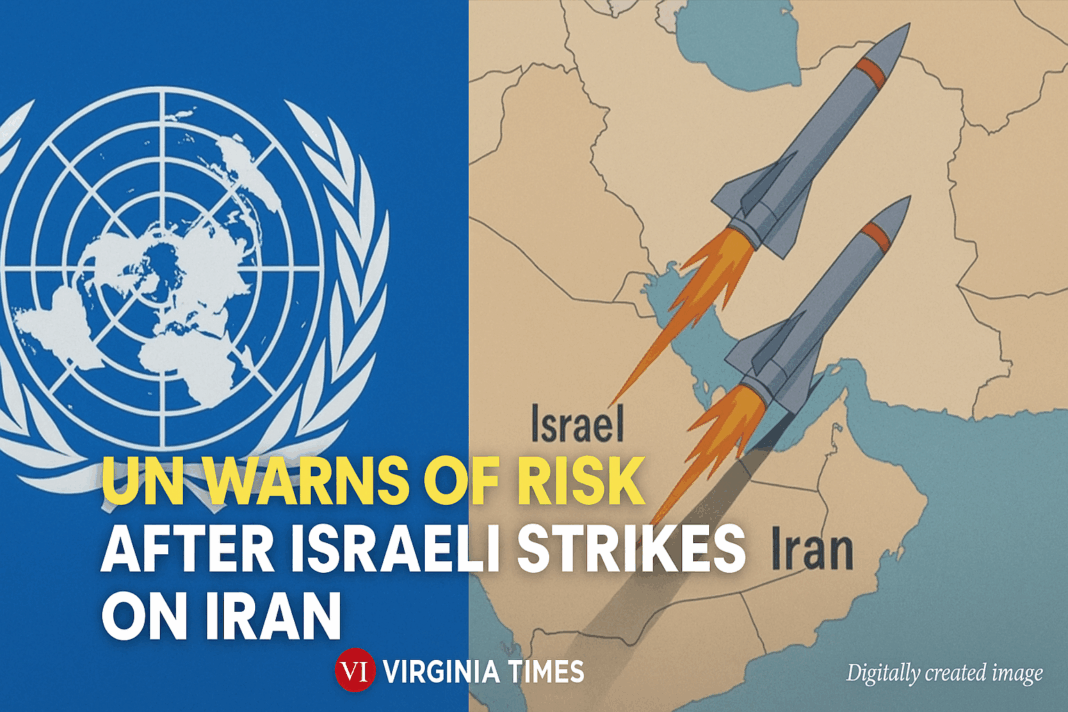- Israel struck Iran’s Natanz nuclear facility overnight; dozens of civilian and scientific casualties reported.
- UN Security Council held emergency session; DiCarlo warns of “grave risks” and urges restraint.
- IAEA Director Grossi confirms radioactive contamination at Natanz; calls for immediate de-escalation.
- Russia and Pakistan condemn Israel; U.S. emphasizes Iran must not obtain nuclear weapons.
- Iran cancels upcoming diplomatic talks with U.S. scheduled in Oman.
Lead
The UN Security Council convened an emergency meeting Friday in response to overnight Israeli military strikes targeting nuclear facilities in Iran, including the Natanz enrichment site. The attacks reportedly killed senior Iranian officials and nuclear scientists and caused localized radioactive contamination, prompting widespread concern over nuclear safety and regional stability, according to UN News.
Background
The strikes, carried out late Thursday into Friday, marked a significant escalation between Israel and Iran. According to media reports, the head of the Islamic Revolutionary Guard Corps (IRGC), Hossein Salami, was among the fatalities. Airspace in the region has since been restricted, and additional Israeli airstrikes and Iranian missile launches were reported Friday night.
Details
Rafael Grossi, Director General of the International Atomic Energy Agency (IAEA), briefed the Council from Vienna. Grossi confirmed the destruction of critical infrastructure at the Natanz site, including the Pilot Fuel Enrichment Plant’s above-ground section and power systems. While there was no indication of external radiological impact, internal contamination was confirmed.
“Nuclear facilities must never be attacked under any circumstances,” Grossi said. “Such actions pose risks not only to local populations but also to regional and international peace.”
The IAEA’s emergency task force remains in constant contact with Iranian authorities and is prepared to deploy additional technical teams for safety verification. Grossi also offered to visit the region personally.
Reaction
Rosemary DiCarlo, UN Under-Secretary-General for Political and Peacebuilding Affairs, condemned the escalation and called for restraint. “We must at all costs avoid a growing conflagration which would have enormous global consequences,” she told ambassadors according to UN News.
DiCarlo also confirmed that Iran has withdrawn from U.S.-led diplomatic talks in Oman, planned for the weekend. She warned that any escalation threatens not only Iran and Israel but the broader international community.
Security Council Statements
Russia’s Ambassador Vassily Nebenzia denounced the strikes as “unprovoked” and warned of potential “nuclear catastrophe,” calling on Western nations to stop fueling escalation. “Settling issues related to the Iranian nuclear programme is only possible through peaceful, political, and diplomatic pathways,” he stated.
Pakistan’s Ambassador Asim Iftikhar Ahmad also condemned Israel’s “blatant provocations” and reiterated Iran’s right to self-defense under Article 51 of the UN Charter. He criticized the attack’s timing, given the planned negotiations on Iran’s nuclear program.
U.S. official McCoy Pitt accused Iran of destabilizing the region through “unprovoked attacks” and stressed that the U.S. was informed in advance of Israel’s actions but did not participate. “This dangerous regime cannot be allowed to have nuclear weapons,” Pitt said, citing President Trump’s longstanding position.
Outlook
As international observers warn of a potential spiral into war, the IAEA and United Nations emphasized diplomacy over force. The IAEA reaffirmed its readiness to act as a neutral technical body supporting verification, safeguards, and safety.
Director Grossi urged that “facts prevail over rhetoric” and reiterated that his agency stands prepared to support peaceful resolution mechanisms, including safety assessments and non-proliferation efforts.
Watch: UN Security Council Emergency Session
Under-Secretary-General for Political and Peacebuilding Affairs, Rosemary DiCarlo, briefed the UN Security Council during emergency session over #Iran – #Israel conflict on Friday. pic.twitter.com/Eoa4JSmfZz
— UN News (@UN_News_Centre) June 13, 2025
Source
This article is based on official statements and reports during the June 13, 2025 emergency UN Security Council session, UN News, and the IAEA official statement.
A global media for the latest news, entertainment, music fashion, and more.














